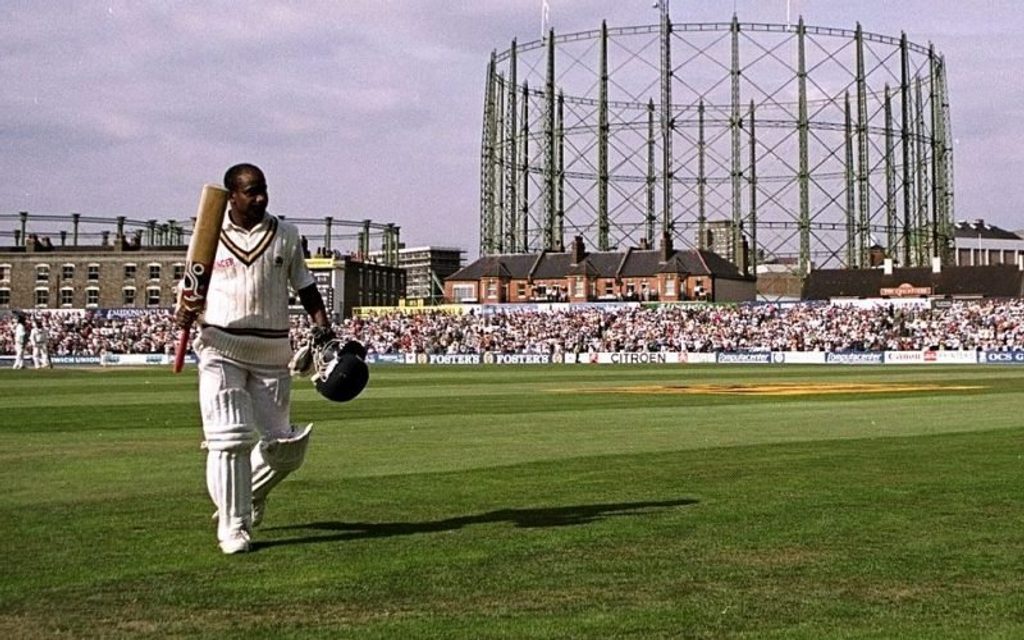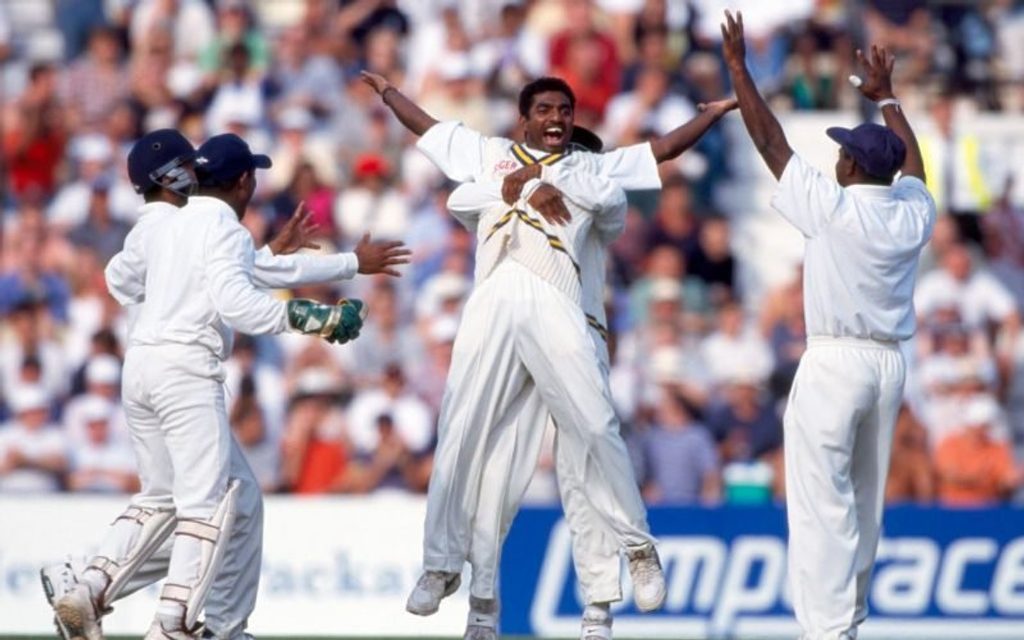
Torn between his Sri Lankan roots and English upbringing, the summer of 1998 provided Vithushan Ehantharajah with a memorable introduction to live Test cricket and a flawed stylist called Mark Ramprakash.
First published in 2016
First published in 2016
It was only in 1996 that I realised you could boast about being Sri Lankan. Growing up in west London, as a bloody civil war rumbled on in Sri Lanka, my parents had kept the idea of nationality close to their chests. We were Tamil, I knew that much. But Sri Lankan? My parents were not totally keen to commit to that.
My father’s family were caught in the crossfire, with various businesses ransacked or burned to the ground. On the eve of my first birthday, my mother lost a sister and brother in mortar attacks. Another brother went missing, only to emerge on our doorstep when I was two or three. My earliest memories are of him cooking, and changing me. Only later in life did I put the pieces together and figure out why he had spent so much time indoors with me.
With little Sri Lankan influence at home, other than the food we ate and the verbal reprimands I received, I was unequivocally English. In life and sport – England. Until one afternoon in 1996 when sat in front of a radio to listen to Sri Lanka’s World Cup final victory over Australia. My dad gave a wry smile as he rose out of his armchair and, for the first time in my life, he let the veil slip: “I can’t believe it – they’ve won the World Cup!”
Being the only Sri Lankan at school, I received congratulations from other cricket lovers who assumed my house was awash with the yellow, green, orange and maroon. I didn’t tell them otherwise. For the first time, there was genuine interest in my background. Interest beyond Mr Brown remarking that I was lucky I’d never have to waste too much money on sun cream. And he was an arsehole.
I lapped it up. I was both Sri Lankan and English in equal measure. “England for football, Sri Lanka in cricket,” I told my classmates, as Euro 96 came and went. “But what happens when England are playing Sri Lanka – who do you support then?” When Sri Lanka arrived for their 1998 tour of England, that bridge needed to be crossed.
By then England had started to stitch some results together and the summer of ’98 was the first in which I properly binged on cricket. Aged 12, I was engrossed in what was to be the BBC’s last year of live Test cricket.
South Africa were in town and I knew they were good because they had big jaws and Ivan Drago opening the bowling. Accompanying Drago was this ginger lad called Shaun who looked like my mate Luke but took far too much pleasure in the misery of others. Luke, by contrast, once gave me half of his sandwich when I left my packed lunch at home.
Having been 1-0 down, England rallied to take the series 2-1, winning the series-decider at Headingley thanks to a century from Mark Butcher, the most bloody-minded 94 from Nasser Hussain and nine and eight wickets in the match for Darren Gough and Angus Fraser, respectively. At the end of the broadcast, the coverage threw forward to the final Test of the summer – England were to play a one-off Test against Sri Lanka.
 Sanath Jayasuriya walks back after scoring a stroke-filled double
Sanath Jayasuriya walks back after scoring a stroke-filled double
Immediately, I put the request to my dad. Almost as quickly, it was rejected. But a few days later he told me that one of his co-workers, who also happened to be a family friend – ‘Uncle Raj’ – had two spare tickets for day one, so me and my younger brother headed off to attend our first Test.
I had never even watched Sri Lanka on TV and that mystique alone meant that I would be rooting for them. Mostly I couldn’t wait to see Muttiah Muralitharan. It wasn’t about the outrageous spin or the shed-load of wickets. Here was a Sri Lankan Tamil playing international sport.
We took our seats in the Peter May Stand, surrounded by a few of my dad’s work friends. As the day wore on, the air around us went from summer breeze to Stella musk and sweat. The bloke behind us got louder with each English run, at one point proclaiming that he had tits on his head after fashioning a hat out of page three of The Sun. Later in the day, as Sri Lanka struggled to get into the game, he asked my brother and me what my dad was doing at short-leg… and slip… and cover… and running in to bowl. I laughed but knew it wasn’t funny. My brother, quiet, unassuming – aged seven – emptied half a bag of Bombay Mix into his pint.
 Muralitharan’s 16-220 is the fifth-best Test match bowling return
Muralitharan’s 16-220 is the fifth-best Test match bowling return
On the field, things weren’t going as I had initially hoped. Murali struggled to get into the game. Sat side-on, I could not really get a grasp of what it was that made him so great. He’d finish with 16 wickets in a 10-wicket win for Sri Lanka.
At the fall of England’s first wicket, out strode Graeme Hick. My immediate thought was, wow, that is a man. The game looked unfair for the rest. Hick stood tall at the crease, dwarfed the Sri Lankan fielders and looked far too big in comparison to the stumps. His hundred seemed inevitable. But just as I was developing a new hero, in walked Mark Ramprakash.
Before Ramprakash, I’d viewed batting as just another component to the game. I held bowling in a higher regard as it seemed more box-office. The action starts with a bowler’s run-up. To me, the bowler controlled the game. But when Ramprakash came out, the game seemed to bow to his whims. When Hick played a shot, people clapped. When Ramprakash played a shot, they sighed before doing so. He only made 53, but did it with such grace.
Our trip home consisted of me firing questions at Uncle Raj during a pit-stop at McDonald’s. “Why didn’t Ramprakash get a hundred?” I asked. Uncle Raj laughed: “He does that sometimes.”
“Do you think he should have got one? I do. Hick got one. Ramprakash should have.” Uncle Raj looked at me, I could see the wheels turning. He coached Bessborough in the Middlesex leagues and knew his stuff. I could tell he wanted to break something to me, but seeing I was head over heels he didn’t want to tell me that, for his money, after 28 matches and just one century, Ramprakash wasn’t cut out for Test cricket, and that he was lucky to keep his place after 249 runs in nine innings against South Africa that summer. That, perhaps, mentally, the highest form of the game asked too much of him.
Instead, he settled for the following: “Batting is too easy for Ramprakash. When you teach someone to bat, you teach them to bat like Ramprakash. Sometimes it doesn’t work. Sometimes, you can do everything right but, whether it is God or something else, it does not work out as you want it to. That doesn’t mean you stop. Ramprakash will probably score more hundreds for England. But, today, he did everything right and didn’t score a hundred. That is cricket.”








